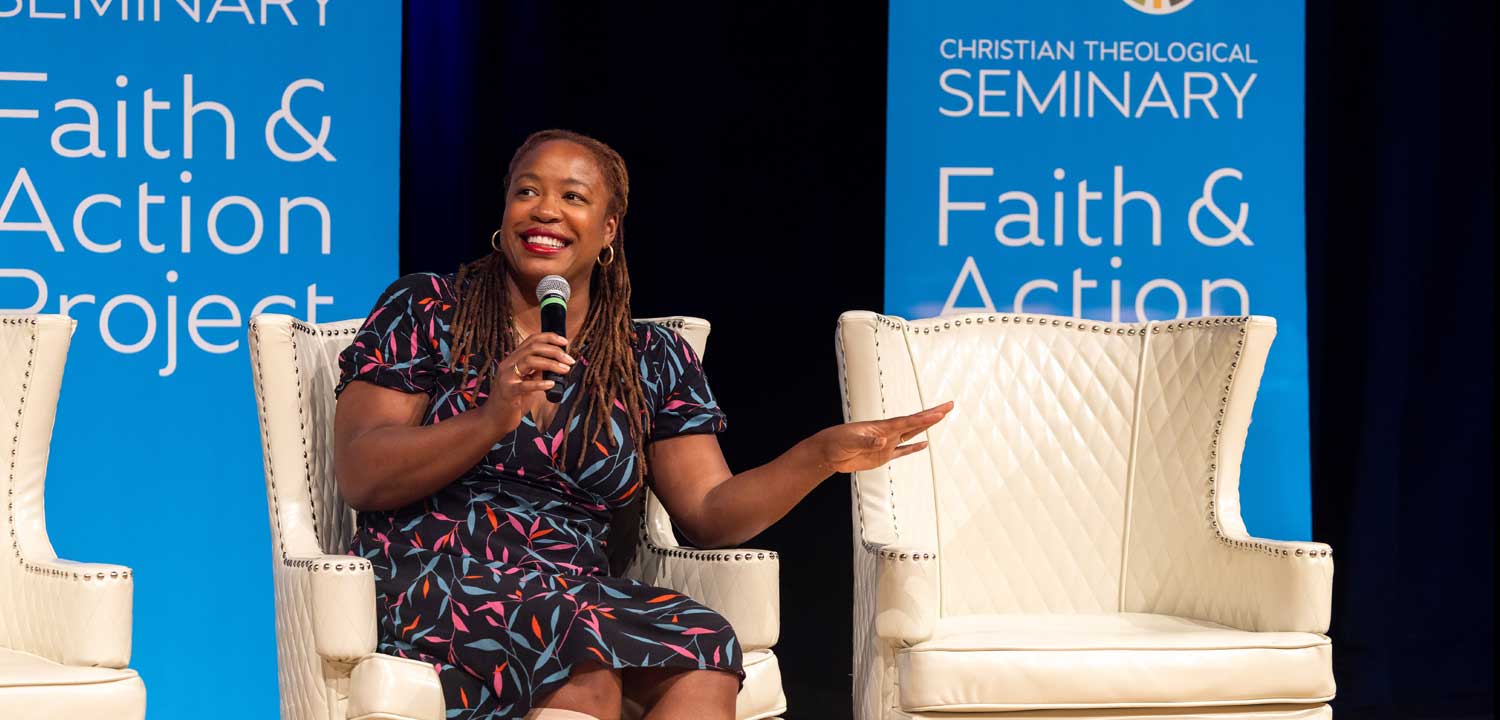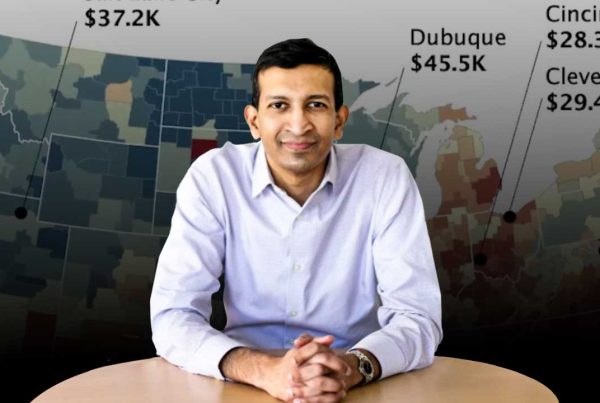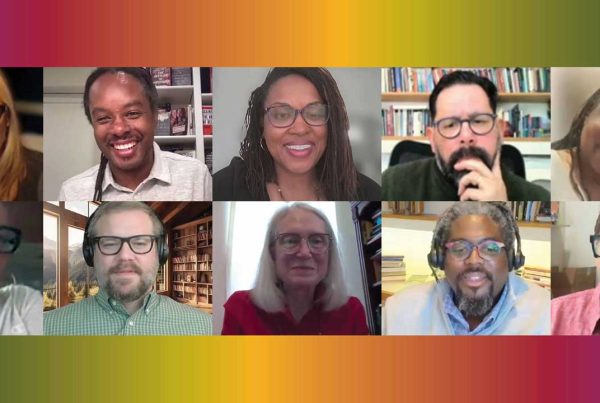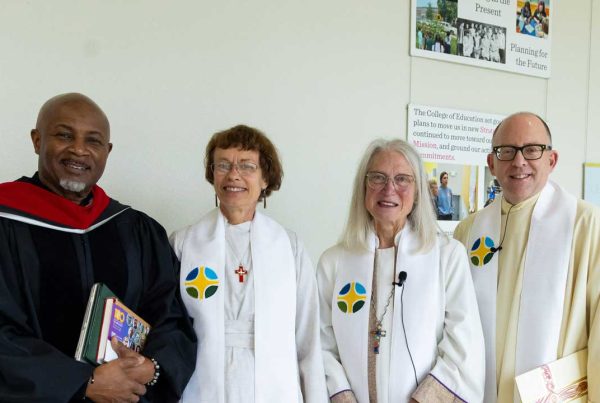Solutions to Poverty Require Us to Examine the Role of Racism
CTS has been intentional, deliberate, and focused on bringing speakers to our community that provide solutions to a long-term goal of poverty elimination and systemic change. We’ve welcomed authors discussing broad issues related to poverty and economists pointing to specific challenges. We’ve heard faith leaders argue for the power of divine collaboration and front-line poverty warriors assert the importance of earthly proximity.
All of the messages have overlapped, linked by consistent themes of the levers that are necessary to build a sustainable pathway out of poverty. Those levers include safe and affordable housing, access to healthcare, opportunity for economic mobility, workforce development, quality education, access to health foods, and a support network. Additionally, several of our speakers have highlighted that opportunity and access is compromised by systemic issues, such as the role of racism in perpetuating poverty.
Our most recent Faith & Action speaker, author Heather McGhee, was no exception. Guided by her book The Sum of Us, McGhee’s talk described the way Americans have let racial discrimination drag them into bad social and economic decisions, how political and cultural issues got in the way of our humanity, and how we all continue to suffer as a result.
As Rev. Beau Underwood, Senior Minister of Allisonville Christian Church (Disciples of Christ), described it, “McGhee highlighted the way racism had led us to deliberately harm ourselves rather than enjoy collective gain through embracing the fundamental equality inherent to all humanity. Rather than pursue a more egalitarian society, we erected racial barriers to privilege some and structurally disadvantage others.”
Rev. Underwood went on to reflect on McGhee’s keynote by saying, “I profoundly appreciated both the substance of McGhee’s message and the ability by which she delivered it. Still, I found myself lamenting that changing the way we think about racism and poverty might be best approached through economic – rather than moral – arguments. I wish our national policy debate on race and poverty could be shifted by reference to common dignity and common sense rather than arguments rooted in dollars and cents. For now, I thank God that Heather McGhee is out there preaching.” You can read his full reflection below.
McGhee made a lasting impact on Rev. Underwood and others in the audience. She was adamant that life is not a zero-sum game. “Our collective economic progress is held back by a lie,” McGhee said. “That lie, is the lie of the zero-sum game.” This lie tells us that one person’s or one group’s progress comes at the expense of another’s. The result of this prevailing narrative is a world in which many white people believe the lie that progress for people of color will come at their expense. (To learn more about McGhee’s message, read the “Lessons Learned” from the 2023 Faith & Action Fall Event.) and see the bottom of the page to hear a clip from McGhee’s keynote about putting our faith into action.
Rev. Beau Underwood’s Reflection
Christian Theological Seminary is a great place for learning how to preach. But, I didn’t intend to receive a homiletics lesson when I arrived on Tuesday, October 3rd for an event featuring the author and policy advocate Heather McGhee.
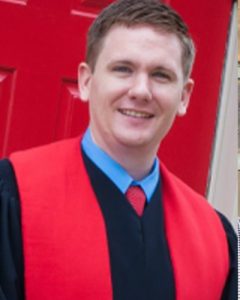 I sat in awe of her presentation. She masterfully wove history, anecdotes, and statistics into a compelling and inspiring narrative. Those in the audience left wiser and ready to put their faith into action.
I sat in awe of her presentation. She masterfully wove history, anecdotes, and statistics into a compelling and inspiring narrative. Those in the audience left wiser and ready to put their faith into action.
Of course, the primary purpose of the event was not to admire the impressiveness of her public speaking skills. That’s just an occupational hazard that comes with the territory of clergy life. Instead, it was to help us all better understand the “why” of poverty – and its connection to the history racial injustice within the United States – and how that informs the “what” and the “how” of addressing it.
McGhee highlighted the way racism had led us to deliberately harm ourselves rather than enjoy collective gain through embracing the fundamental equality inherent to all humanity. Rather than pursue a more egalitarian society, we erected racial barriers to privilege some and structurally disadvantage others. As a result, we all suffered.
We bought into the cultural lie of a zero sum game, where increasing the status and benefits of one group necessarily made the lives of others worse off. Not only did we inhibit the flourishing of minority populations, but we also limited entire groups from contributing their full efforts to our economy. It’s one more example of racism’s perniciousness.
McGhee forcefully countered this mindset, encouraging the audience to see how we need the “sum of us” for all of us to thrive. It’s trite to say that “we are all in this together.” Yet, it remains difficult for us to translate that basic idea into a lived reality.
I profoundly appreciated both the substance of McGhee’s message and the ability by which she delivered it. Still, I found myself lamenting that changing the way we think about racism and poverty might be best approached through economic – rather than moral – arguments. I wish our national policy debate on race and poverty could be shifted by reference to common dignity and common sense rather than arguments rooted in dollars and cents.
For now, I thank God that Heather McGhee is out there preaching.
Rev. Beau Underwood
Senior Minister, Allisonville Christian Church (Disciples of Christ) – Indianapolis, IN

